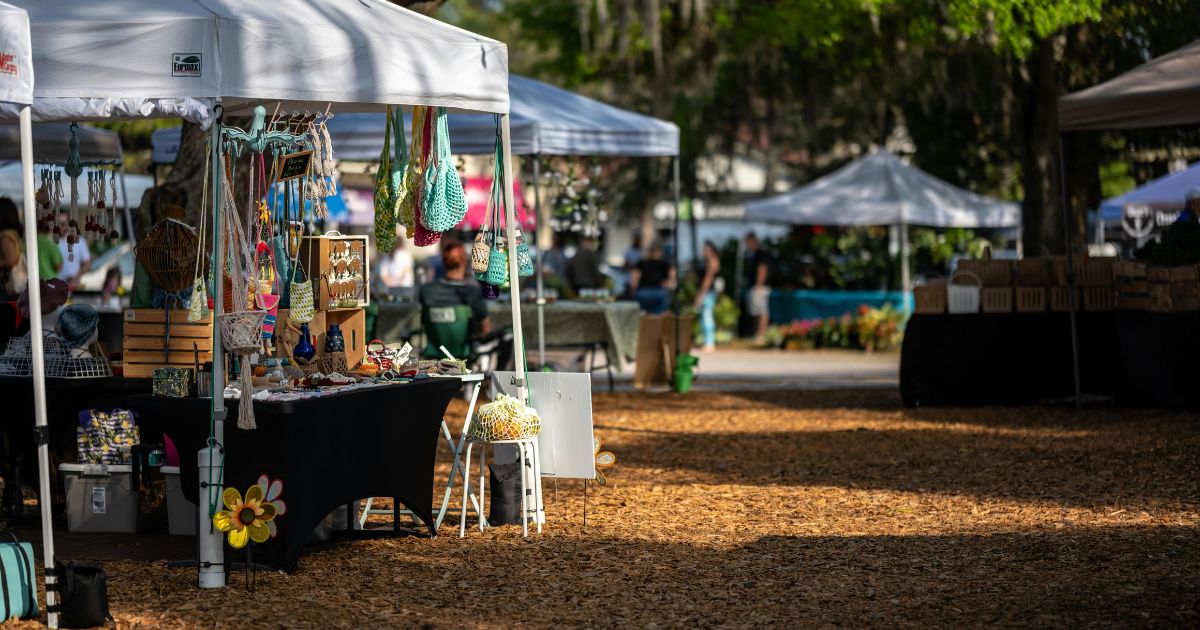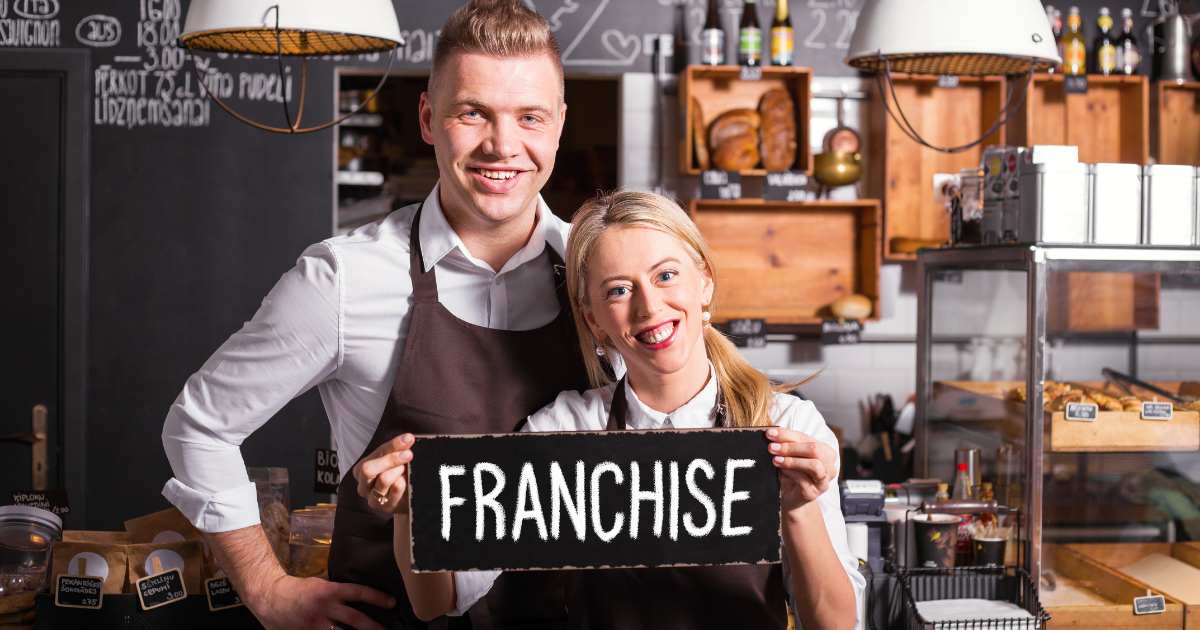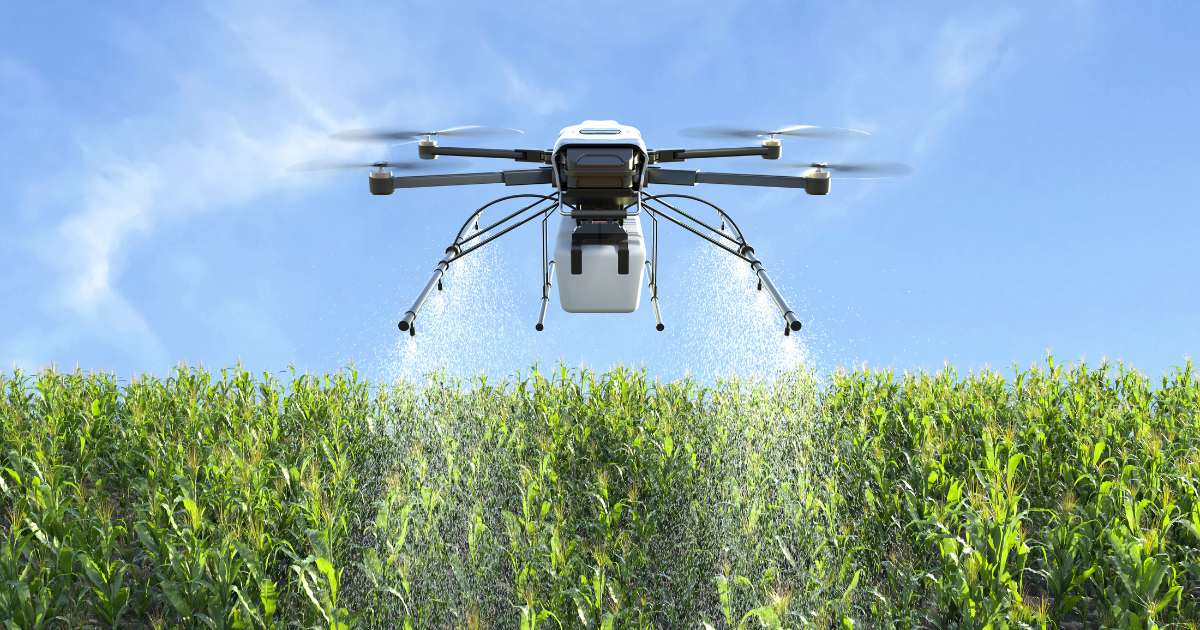UPDATE: This article was originally published in January 2020, but due to its popularity it’s been updated on 14 June 2024.
The LoCrate Market in Soweto is one of the many venues where food trucks can be found. Long a trend in the US and UK, food trucks are growing in popularity in South Africa.
Food trucks can be found anywhere from ordinary street corners or at dedicated food truck stops like The Hoods in Sandton, which is Johannesburg’s first food truck stop. Some food truck businesses focus on live events such as festivals, weddings and markets like LoCrate Market in Soweto; BrownSense in Johannesburg and Cape Town and Fourways Market. There are also opportunities for food truck businesses to serve private and corporate events.
The most successful food truck businesses succeed by finding a niche, creating a personality for the business and building great customer relationships.
Food truck businesses offer a variety of food offerings. The Cape Town Food Truck Association lists the following niches: Asian-inspired food, pork belly and ribs, wood-fired pizzas; poke bowls; Indian food and bunny chow, Mexican, Cajun, chips, waffles, sushi and oysters, gelato, frozen yoghurt and coffee. Other popular niches are American-inspired fare like burgers and hot dogs, and traditional South African dishes like pap, chakalaka and braaied meat.
Industry Overview
Food trucks form a part of the food and beverage sector. The fast food sector is a major contributor to the growth of the food and beverage industry. The industry showed 2,9% growth in May 2019 when compared to the same period the year before, this is thanks to a significant increase in fast food sales which grew by 7,5% when compared to the same period in 2018.
A study by Lightstone Explore found that consumers are attracted to fast foods because of convenience, which suggests that consumers are moving away from “the costly, both in time and money, implications of eating out in a restaurant.
The same study found that 90% of South African residents live within 5 km of at least one fast food outlet.
Key Trends
There are a number of trends driving the popularity of food truck businesses.
Dov Girnun, founder and CEO of Merchant Capital, gives two factors that are fuelling the popularity of the sector.
“South Africans spent more on eating out and coffee last year than they did the year before,” says Girnun. “And because hard-working consumers are tending to work even harder during this downturn, they don’t have the time to cook.
“This translates into an uptake in take-outs or grabbing a quick bite to eat. Good news for those working in the food and beverage sector.”
The second reason he gives is the rise of foodie culture.
“Consumers have developed an international palate and there is a growing opportunity for more “small food” innovators, which are becoming increasingly popular with patrons looking for authentic foreign food that is locally made and produced.
“With an inherently multi-cultural society, South African consumers are now spoilt for choice and restauranteurs are cashing in on this wave.
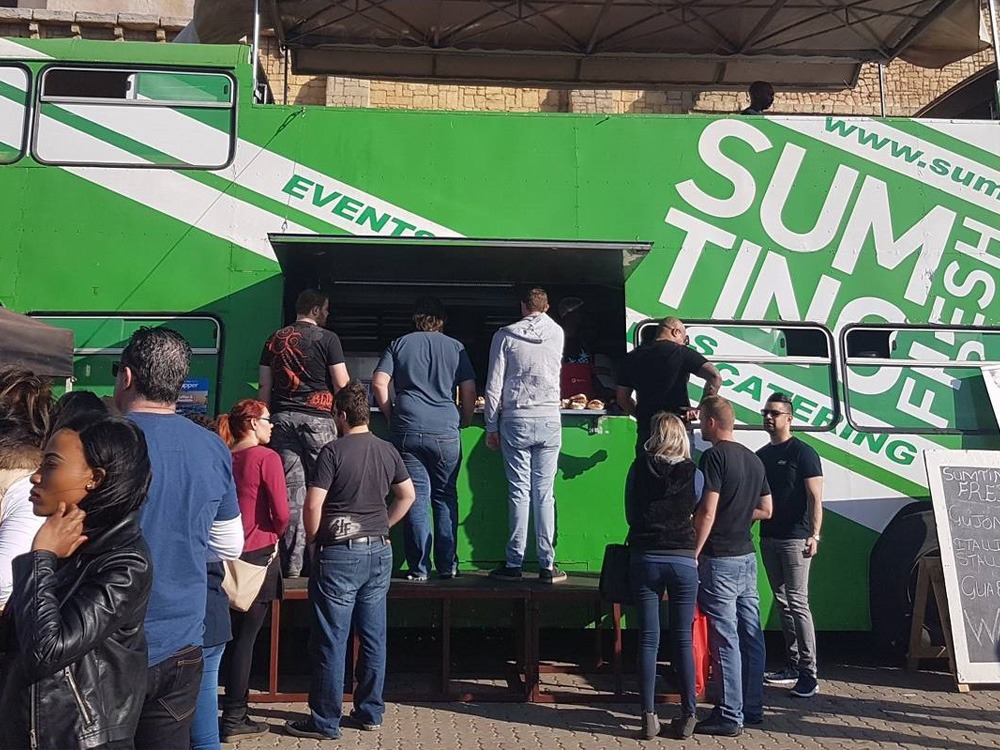
Success Stories
While still a relatively new sector, there are brands that have successfully established a name for themselves. The Balkan Burger food truck was launched by brother and sister team, Bojan and Lidija Ivanovic, on a hunch, with only R 5 000 in 2012. The brand is well-known for its Serbian-inspired cheeseburgers.
Other forerunners in the sector include Sumting Fresh, which offers cocktails and chicken dishes, founded by entrepreneurs Hezron Louw and Andrew Leeuw. Today it is a globally recognised food brand, loved the world over for its creative cuisine and exuberant service style.
Laws and Regulations
In addition to business registration, certain businesses are required to get a business license in terms of the Businesses Act, this includes businesses making or selling food that can go off.
A business licence is generally required for businesses that need to comply with health and safety regulations.
Your local municipality handles business licences and you can contact them for details on licensing procedures and the various health and safety regulations required for different kinds of businesses.
The most important regulations that business owners in this sector have to comply with are health and safety permits, licenses for the selling of liquor and tobacco, as well as zoning permits, to operate in certain locations.
If you comply with all the requirements, you will be issued with a licence. If not, you can apply for a 14-day grace period, during which you can make changes to your premises so that they meet the requirements.
Regulations also require a food business to possess a certificate of acceptability. For a certificate of acceptability, you will generally be required to provide information regarding the nature and type of food being handled on the premises, the nature of the handling (e.g. preparation, packing, processing etc), and certain other information.
The law also requires all home and business owners who have liquid gas installed in their home or business to obtain a gas compliance certificate, also known as a Gas Certificate of Conformity.
SEE HERE: Starting A Business: Licensing and Permits For The Food Industry
It is also mandatory for a person to register for VAT if the taxable supplies made or to be made is, in excess of R1 million in any consecutive twelve-month period.
Financial Management
Steven Cohen Head of Sage One International (Africa, Australia, Middle East and Asia): “It’s important to look at how you will earn a healthy margin off goods that will be more expensive to make or source than the mass-produced alternatives.
“How do you balance quality and price to ensure profitability? How do you keep people coming back, even if you’re not the cheapest supplier on the block?
“Traditional business disciplines such as tight inventory management, market research, hard-hitting sales and good customer relationship management are all key to success.”
Getting Started
Breyton Benjamin is the owner of Big Bite RoadHouse, which is based in Ceres in the Western Cape. They specialise in a variety of hearty, traditional meals like a full house Gatsby and the masala steak Gatsby. His meals are jam-packed with flavour and represent real South African culture.
Benjamin is someone who understands and honours South Africa’s food culture and its importance. He advises future entrepreneurs to surround themselves with supportive people who bring value and want to see them succeed.
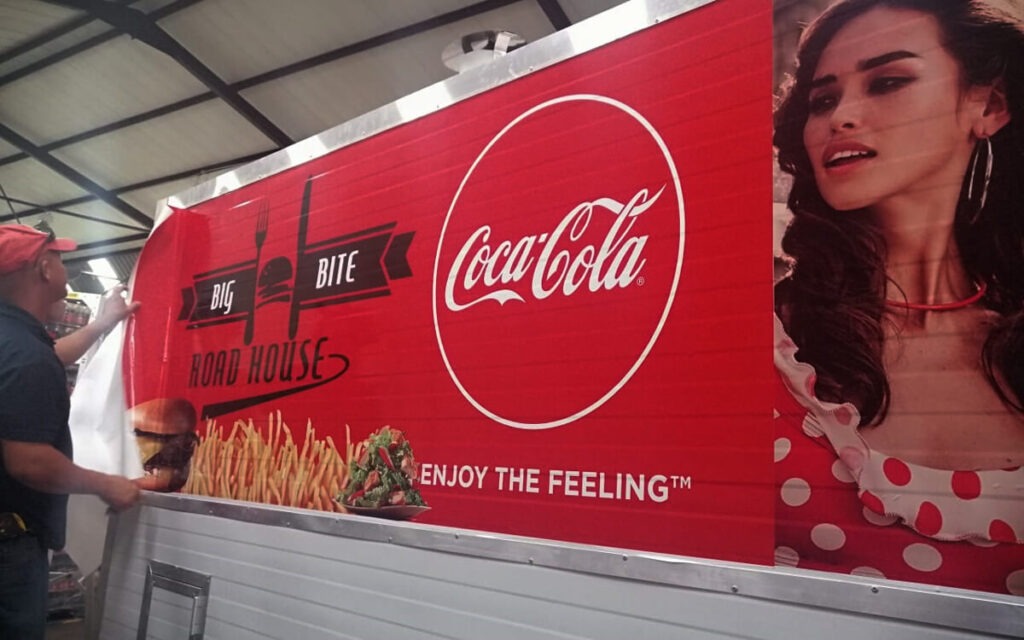
Benjamin shares his expertise in running a successful food truck business:
Choosing Your Target Market
The size of my market is limitless because ‘everyone must eat’. We cater to lower, middle, and higher-income people, including a vast portion of the market which hasn’t been tapped into.
Set-up Costs
For the cost of a food truck, one would have to speculate how much space you need and what is affordable, the relevant size for the market you’re catering for, and which market segment you want to tap into as well.
For instance, if you are just doing catering [for events], you won’t need such a big food truck to use for the general public. There is a big variable cost on items like fryers, gas stoves or grills. For us, we just basically copied what we had in our current shop and applied it to our food truck.
A pretty decent trailer can cost between R 100 000 and R 150 000.
Opportunities Available
The opportunities to explore are limitless, I believe that if you want to do something and you’re very passionate about it, just make it better than existing businesses with the same offering. Don’t ever give up on what you believe in if it creates value for the customer.
Sales and Marketing
There are two things I look at in order to stand out in the market; what people are familiar with and how I can innovate and put my own twist on dishes to make it unique.
I want to have a niche market that makes people come to me, instead of them going to my competitors. I am building a loyalty base by letting my customers know why I recognise them for being loyal, and I think they like that a lot.
The best way to convert customers is by showing your products and by being genuine with them, we all love other people being real with us. I also get customers through social media, and casual talks and most of my customers I get through word of mouth.
Industry Challenges
The biggest challenge we have is unexpected loadshedding, luckily customers understand, and they have become accustomed to it. Another challenge is employing the right staff.
Standardising everything for new trainees and chefs is also difficult because you want them to be themselves in the kitchen and to keep them happy as well, but there must be a consistent product that comes out of Big Bite Roadhouse.
Another challenge is menu development, we generate new ideas and test them every day.
Finding the right suppliers for food items is another battle: one may tend to go for cheaper suppliers, but we prioritise quality. I pay more for my stock, and it shows in my figures and growth, my customers always come back.
Location
Choosing a location is very important, I’ve made the mistake of just taking any shop that was available. One must know the physical location very well, and if you don’t know, you need to find out where most of your market is at a specific time during the day. If you want to position yourself next to other food trucks, you’re going to need unique product and create more value than your competitors. Try to keep the product consistent.
So many things go together with choosing the right location: from how to get there (logistics) to how much it will cost you to get there.
My pricing changes a little bit depending on where the event is going to be held. So, the location is key. Your business can take off so much quicker in the right location.
Start-up Advice
My advice to young entrepreneurs starting out is to surround yourself with the right people and to toughen up a bit because the ride is never easy.
It is the unexpected stuff that throws you off, and it is in that moment that outcomes are determined. So, decision-making and the ability to work under pressure is very important. Find a Start-up Mentor here.
[Update]
Must-have Tech Tools for Food Trucks
Search and Maps – Google My Business is a free online tool that allows your customers and potential clients to find your contact information when they conduct a Google Search. For food trucks with a designated spot during weekdays, Google Maps helps customers track their trucks. In addition to Google My Business, there are a number of location tracker apps available that help new customers do the same thing. Find out how to create a profile for your business here.
Mobile POS system – Make it easy for customers to pay you by offering them various payment solutions such as a credit and debit card POS terminal, Tap & Go option, or QR Codes – all via your POS system. With your POS system, you will also get access to apps and a dashboard that can help you provide discounts and rewards to customers, as well as keep track of your customers’ data including their contact numbers (for SMS marketing) and e-mail addresses. You can also integrate your POS system into your e-commerce website. Find the POS system here.
Accounting software –All businesses need to keep an eye on their finances, and food-based businesses are no different. Get clarity and keep track of your finances from anywhere and at any time with cloud accounting software. Your accounting software will also enable you to calculate sales tax, revenue, and complete cash flow forecasts, as well as manage your inventory. You can also process online payments and send invoices immediately. Read our Review of Accounting Software for Small Businesses
Online ordering systems – By using online ordering systems customers can order their food to-go from your food truck which can be integrated into your website or e-commerce store. Most systems come with digital menu functionality, on which businesses can share images or videos of their food.
Social media apps – As part of your social media strategy, use social media to find new customers, provide customer service, or give updates letting them know where your truck is located on a particular day. Also, use social media to engage with your customers by posting or sharing images of their food truck experience on your own social media pages.
Industry Support
Food Truck Manufacturing
Food Truck Associations
The Cape Town Food Truck Association is a member services organisation. They advocate on behalf of all their mobile food members to help them succeed in this very competitive industry.



